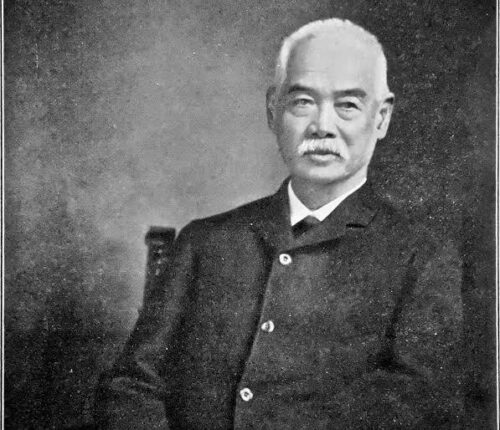This Week in China’s History: January 11, 1943
On January 11 1943, in the midst of World War II, China won one of its longest and most hard-fought battles.
It was not against the Japanese, who had been occupying parts of the country for more than a decade. And it was a quiet victory, not a single shot fired.
Instead, in two separate treaties, the United States and Great Britain relinquished extraterritorial privileges in China, restoring Chinese sovereignty for the first time since the end of the first Opium War.
Since 1842, China had endured a “century of humiliation,” a term coined by Chinese leaders in the 1910s to describe China’s subjugation to colonial, usually Western, powers. At the center of this was the concept of extraterritoriality, a policy that in effect exempted many foreigners from Chinese jurisdiction. Not only this, but Chinese law did not apply to anyone living in areas granted to those same foreign powers. This applied to colonies like Hong Kong of course, but also to semi-colonies called “concessions,” most notably in the center of Shanghai but also other treaty ports lining the Pacific coast and the Yangtze River.
Imperialists deployed extraterritoriality all across the world, justifying the policy in bluntly racist terms. American and European officials asserted that “non-Christian” governments in Asia and Africa were not civilized enough to treat their citizens fairly.
In China, their citizens abroad would remain subject to U.S. and British law, enforced by consular, not Chinese, officials. Caleb Cushing, the American diplomat who negotiated treaties establishing extraterritoriality, argued that without extraterritorial protection American citizens would be at risk, subject to the “sanguinary barbarism of their inhabitants” or the “narrow-minded policy of their governments.”
“To none of the governments of this character,” Cushing wrote, “was it safe to commit the lives and liberties of citizens of the United States.”
The unveiled racism of Cushing’s explanation is startling to today’s reader, but it would have been uncontroversial in Western capitals at the time. The idea of non-white peoples ruling themselves was far from popular — that was one of the central justifications for imperialism. But the notion that white Europeans, or Americans, would be subject to non-whites was intolerable. Extraterritoriality enabled imperialism, and vice versa.
There were rough precedents in China for extraterritoriality, which perhaps facilitated these more aggressive Western versions. Arab traders in Chinese port cities enjoyed extraterritorial privileges as long ago as the Tang Dynasty. Historian Pär Cassel documents, in his book Grounds of Judgment, that local elites in frontier regions like Xinjiang and Tibet “had considerable room to shape their own legal order under Qing rule.” In 1836, a Qing treaty granted extraterritorial rights to Muslim traders in the frontier city of Kokand.
But Western forms of extraterritoriality in China that were codified by the treaties following the first Opium War in 1842 were humiliating dismissals of Chinese sovereignty, going much further than accommodating local customs or practices. They laid out the relationship between Chinese and Western subjects. For example, the 1844 Treaty of Wanghia, which established relations between the Qing empire and the United States, stated that: “citizens of the United States, who may commit any crime in China, shall be subject to be tried and punished only by the consul…according to the laws of the United States.”
Similar treaties applied to Great Britain, France, and eventually 25 other nations, who guaranteed their citizens would not be subject to Qing law, but to the laws of their own countries.
Diplomats like Cushing window-dressed their justifications for extraterritoriality with talk of modern governance and protection of their citizens. As early as 1902, Japan, Britain, and the United States said they would give up their legal privileges whenever China modernized its laws and governance. But after 1912, when the Qing monarchy was replaced with a republic, extraterritoriality remained in place.
In the meantime, Westerners in China remained largely above the law in China. Writing for the Minnesota Law Review in 1924, Charles Loring describes an admittedly extreme example of how extraterritoriality miscarried justice, “a case where Chinese and foreigners conspired to commit a robbery which culminated in a murder. Of the conspirators, two Chinese were convicted and beheaded the day following the crime. An Englishman was turned over to the British authorities but the witnesses for the prosecution disappeared before the case came to trial, and the defendant was released. Two citizens of the United States got four years imprisonment and a Dane was released without trial because the Danish Government had made no provision for such trial.” Loring, nonetheless, explained the importance of extraterritoriality: “it gives the foreigners enjoying that privilege a sense of security which is very comforting.”
In 1921, an international commission was proposed to take up the question, to no immediate effect, but the question continued to be pressed. In 1924, diplomat Charles Denby illustrated general American policy to defend extraterritoriality: that the system would have to be changed at some point, but that at present “an impartial observer” would find it a “criminal injustice to foreigners in China and an unfriendly service to China herself to place foreigners and their property under Chinese law.”
Nevertheless, in 1929, Denmark, Spain, Italy, Belgium, and Portugal agreed to relinquish extraterritorial rights in China, and throughout the 1930s rumors of the policy’s impending end persisted.
The Japanese attack on Pearl Harbor and America’s entry into the Pacific war changed the approach to extraterritoriality. China’s republic was now one of the Big Five allies, along with the U.S., Britain, France, and the Soviet Union. A system designed to reduce China to a second-rate nation flew in the face of not only Chinese wishes, but American propaganda that was promoting China as worthy of American support and, if need be, lives.
In April 1942, writing in the New York Times, China’s First Lady Soong May-ling (宋美齡 Sòng Měilíng) called extraterritoriality a “vicious legal device” that was part of a western strategy to “take as much as possible from [China] by force and give nothing in return.” Soong, whose oratorical skills were regularly called upon to make the case for the Republic of China, including in her speech to the United States Congress, made the case clearly and persuasively: “However much Westerners might respect China culturally, they seemed to be constitutionally unable to regard her as an equal.” For her, the “arrogant belief in innate Western ascendency” needed to be overturned, given China and the West were now allies.
In keeping with sentiments like Soong’s, the United States announced on the eve of China’s National Day in October 1942 (which was then celebrated on October 10, as it is in Taiwan’s Republic of China today) that it wished to relinquish extraterritorial rights. Negotiations culminated in a treaty signed on January 11, 1943, with Great Britain signing a similar treaty on the same day. Both of them renounced jurisdiction over their nationals in China, along with abrogating previous “unequal treaties” and pleading to renegotiate them on “generally accepted principles of international law and with modern international practice.”
The treaties also renounced the international concessions in places like Shanghai, Tianjin, and Xiamen — but since all those cities were in Japanese hands, those terms were without practical effect until the war’s end (and, ironically, the Japanese returned the Shanghai International Settlement to Chinese sovereignty later in 1943).
Despite their eventual abolition, extraterritorial concessions had been implemented legally, with the full force of international law at that time — a law that clearly favored Western imperialist interests. This begs the question of what constitutes “international” law, and which countries it truly serves. Cassel points to the legacy of extraterritoriality as a key factor in the PRC’s skepticism toward international institutions and rules, and why the PRC believes that norms constructed without Chinese input are, by their nature, fundamentally biased toward Western powers.
This Week in China’s History is a weekly column.






